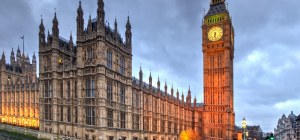49: Great Repeal Bill – He marched them up to the top of the hill and he marched them down again
The EU (Withdrawal) Bill has cleared its final Parliamentary stages and will receive Royal Assent shortly.
In last week’s post , we explained that the Bill had been returned by the Lords (much amended) to the Commons, but the Government had successfully overturned the vast majority of the Lords’ changes with which it disagreed, either by winning votes on rejecting those changes or by proposing its own amendments in lieu. But, notably, one of the Government’s changes in lieu – that on the form of Parliament’s ‘meaningful vote’ on the EU deal and, in particular, what happened if no deal was reached with the EU or Parliament rejected the deal – only passed when the Government agreed to introduce further changes to that amendment in the Lords.
Further Lords’ changes
So, on Monday 18 June, the Bill went back to the Lords, so peers could consider the Commons’ changes.
The Lords’ accepted the Government’s changes in the Commons, including its amendments in lieu, and also accepted the following three amendments proposed by the Government in the Lords (full details):
- Enhanced protection of specific areas of EU law: Baroness Hayter’s original amendment (discussed here) had applied to all retained EU law relating to employment and equality rights, health and safety protections, and consumer and environmental standards. The Commons rejected that, but proposed alternative the House of Lords have proposed amendments to the Bill on 18 June to create enhanced scrutiny procedures for statutory instruments which amend or revoke subordinate legislation made under section 2(2) of the European Communities Act 1972.
- Power of scrutiny committee: Lord Lisvane’s original amendment (discussed here) would had given the sifting committee a power to require greater scrutiny for statutory instruments modifying retained EU law. The Commons rejected that but, to avoid defeat in the Lords, the Government proposed an amendment to require a ministers to make a written statement if they disagreed with the committee’ recommended scrutiny procedure. That amendment was accepted.
- Rights of reunification of unaccompanied child refugees: Lord Dubs’ original amendment (see here), to require the Government to negotiate to maintain the effect of the Dublin Regulation, was amended by the Government in the Commons, such that the Government is required instead to negotiate an agreement with the EU to allow an unaccompanied child to join a relative in the UK who is a lawful resident (and vice versa)). The Lords accepted a further amendment, to remove the requirement that the sponsoring relative be ‘aged 18 or over’.
On the crucial issue of the ‘meaningful vote’ amendment, the Lords accepted the Government’s amendment in lieu, but also voted in favour of an amendment tabled by Viscount Hailsham (called Grieve II, because it was tabled on behalf of Dominic Grieve MP). Explaining it, Viscount Hailsham said:
‘Grieve II, the Motion to which I am now speaking and will formally move, reflects the agreement that Mr Grieve believed he had made with the Solicitor-General. Mr Grieve thought that Grieve II was agreed to, but it appears that senior Ministers objected and it has now been repudiated. By moving Grieve II… I am asking your Lordships to make a decision which will enable the House of Commons to vote on what Mr Grieve believes was agreed with the Government.’
That amendment said that:
- if no deal were reached with the EU by 21 January 2019, then a minister must make a statement setting out how the Government plans to proceed and the Commons must approve this statement in a motion; and
- if Parliament rejected the deal brought back from Brussels, then the Commons would vote on a motion to approve a statement made by a minister setting out what the Government plans to do next.
Crucially, compared to what the Government tabled in the Commons, ‘Grieve II’ allows the motions to be amended by Parliament, effectively giving the Commons the power to direct the Government to move forward in a particular way.
The Lords then sent the Bill back to the Commons.
In the Commons: ‘in neutral terms’
Yesterday (20 June), the Commons considered the Lords’ further amendments, including ‘Grieve II’, and also the Government’s (further) amendment in lieu to the ‘meaningful vote’ clause.
The Government’s amendment in lieu required only a ‘motion in neutral terms’ in the Commons, ie to the effect that the House had ‘considered the matter in the statement’ made by the minister. The Standing Orders of the House of Commons state that if the Speaker considers that a motion is expressed in ‘neutral terms’, then ‘no amendments to it may be tabled’ (Standing Order number 24B).
Yesterday, the SSExEU (David Davis) issued a written statement explaining the meaning of ‘in neutral terms’ as follows:
‘In this amendment in lieu, reference is made to a motion “in neutral terms”.
The purpose of this written ministerial statement is to set out the Government’s understanding of the way in which this reference to ‘in neutral terms’ will operate in practice.
Under the Standing Orders of the House of Commons it will be for the Speaker to determine whether a motion when it is introduced by the Government under the European Union (Withdrawal) Bill is or is not in fact cast in neutral terms and hence whether the motion is or is not amendable.
The Government recognises that it is open for Ministers and members of the House of Commons to table motions on and debate matters of concern and that, as is the convention, parliamentary time will be provided for this.’
Despite this formulation effectively reserving the argument for another day (and couching it in the difficult realm of the Speaker’s powers under Parliament’s Standing Orders), this proved sufficient assurance for most of the backbench rebels, including Grieve, to back down. Explaining his position in the Commons, Grieve explained that, under the Government’s formulation, the Commons could still hold the Government sufficiently to account:
‘… an unamendable motion to note in a statute… has absolutely no force at all. The reality is that it is part of the Standing Orders of this House, and it is not open to any interpretation in any court and, ultimately, it will be entirely your responsibility, Mr Speaker, to decide what can or should not be treated as a neutral terms motion… [A]lthough this debate has been about trying to provide assurance—not just in this House, but to many members of the public outside who are worried about the end of this process and what might happen—the truth is that the assurance does not lie in the words of the statute, except in so far as the statute is the word of the Government. The assurance lies in the hands of this House and, in the first part of the statement, in the power of the Speaker.’
Given that, he said, he had insisted on the final paragraph in the written statement, saying that if Parliament wished to ‘speak with one voice’ and exert its influence in the face of a non-deal scenario, it ‘has the power to do it’.
But Ken Clarke was unconvinced:
‘We are being asked to substitute, for a perfectly reasonable Lords amendment, a convoluted thing that would mean arguments about the Speaker’s powers if it ever had to be invoked.’
George Howarth (Labour) was less charitable, saying:
‘I hold the right hon. and learned Member for Beaconsfield (Mr Grieve) in very high regard for his integrity and fluency. I do, however, say gently that he is in danger of turning into a modern-day grand old Duke of York. There are only so many times you can march the troops up the hill and down again without losing integrity completely.’
In the vote itself, six Tory MPs – Ken Clarke, Anna Soubry, Sarah Wollaston, Heidi Allen, Antoinette Sandbach and (recently resigned minister) Phillip Lee – still rebelled, but four Labour MPs backed the Government and six other Labour MPs abstained, as did Kelvin Hopkins, who sits as an independent after having the whip withdrawn. So the Government won the vote on ‘Grieve II’ by 319 votes to 303 (a Government majority of 16), and its own amendment in lieu also passed.
The remaining Lords’ changes were accepted without a vote.
And back to the Lords
The final Parliamentary stage was the House of Lords accepting (without a vote) the Bill sent back to them from the House of Commons. Royal Assent to the Bill, bringing it into law, will follow, probably later this week.











